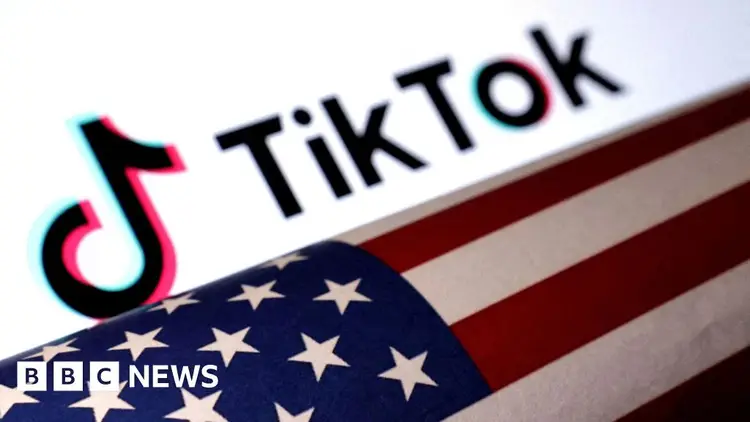TikTok set to be banned in the US after losing appeal

TikTok's attempt to contest a law that could lead to a ban or require the sale of the platform in the US by early 2025 has been denied.
The social media platform was optimistic that a federal appeals court would side with its claim that the law violated the Constitution, arguing that it significantly affected the free speech rights of its 170 million users in the United States.
However, the court supported the law, stating that it represented the result of significant efforts made by both political parties in Congress and by various presidents over time.
TikTok has announced that it will bring its battle to the United States Supreme Court, which is the top legal authority in the country.
The United States is pushing for TikTok to either be sold or banned, citing concerns regarding its owners' connections to the Chinese government. TikTok and its parent company, Bytedance, have consistently refuted these claims.
The court acknowledged that the law was specifically designed to address control exerted by a foreign enemy, and it was part of a larger initiative to respond to a significant national security risk posed by the People's Republic of China (PRC).
However, TikTok stated that this isn't the conclusion of its legal battle.
"A representative from TikTok stated that the Supreme Court has a long history of upholding the right to free speech for Americans, and we believe they will continue to do so on this significant constitutional matter."
They mentioned that the legislation relied on "incorrect, problematic, and speculative data," and enforcing a ban would restrict the freedom of American citizens.
Donald Trump's success in the 2024 US Presidential Election could offer a fresh opportunity for the app.
Even though he tried to ban TikTok without success in 2020, he stated that leading up to the November elections, he would make sure the ban wouldn't be implemented.
Trump will be sworn in on January 20th, which is also the deadline for TikTok to either be banned or sold, according to the law.
Nonetheless, it is still uncertain whether he will act on his promises made before the election.
Cornell University Professor James Grimmelmann remarked that the president-elect would be facing significant challenges in trying to provide TikTok with a second chance.
"There is a significant anti-China feeling within the US Congress, which has led to increased support from both political parties for limiting TikTok's presence in the American market," he shared with BBC News.
The legal proceedings have attracted significant attention from TikTok users as well as its competitors.
Tiffany Cianci, an advocate for small businesses and a TikTok creator, stated that she was "not surprised" by the decision made on Friday. However, in an interview with BBC News, she mentioned that she has no plans to move her TikTok content or presence to competing platforms like Instagram.
"I refuse to give in to their demands and move my content to their platforms, where it’s less successful and more prone to censorship, and where I would have less influence over my audience," she stated.
However, other platforms are preparing themselves for a social media environment that comes after TikTok.
Meta, the company behind Facebook, Instagram, WhatsApp, and Threads, has been working to create alternatives to TikTok's short videos within its platforms. They've implemented updates that many users say resemble TikTok, especially as concerns grow about the app's future in the U.S.
Jasmine Enberg, the lead analyst at eMarketer, stated that there would be significant disruption if TikTok's appeal were to be unsuccessful in the Supreme Court and a ban were put in place.
She mentioned that this would be advantageous for Meta, YouTube, and Snap, but detrimental to content creators and small businesses that depend on the app for their livelihoods.
However, recreating TikTok won't be a simple task, according to Cory Johnson, Chief Market Strategist at Epistrophy Capital Research. He explained that TikTok's recommendation system is driven by advanced deep learning models.
"According to Johnson, supporting advanced AI and handling vast amounts of data at TikTok's huge scale demands a massive and costly technological framework."
He mentioned that TikTok's precise targeting and China's data regulations present major dangers, highlighting Elon Musk's changes to the algorithms on his social media platform X, which used to be called Twitter, as a warning example.
As the U.S. election approached, Musk's political posts garnered more attention than all the political campaign ads in X's disclosure dataset, according to Johnson.
"We've had a clear and recent example in America of a social media platform modifying its algorithms to promote specific viewpoints," he stated.











































